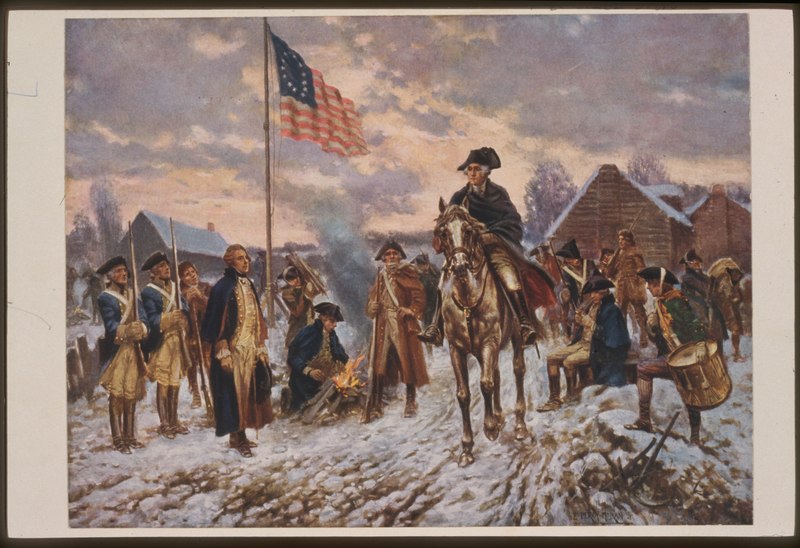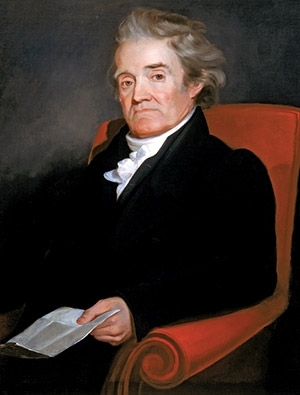
© 2018 Don Pinson | [Download]
(Link not working? Right-click and select “Save As”.)
One of the men who helped to found our nation, but is almost completely unknown today, was Noah Webster. He wrote our first dictionary, a work of twenty years in the making, which he published in 1828. He published his Blue Backed Speller, which sold millions of copies over the following 100 years. It was an entire learning course compacted into a small book, which the pioneers used to educate their children. In 1832 he published his History of the United States and included a “brief exposition of the U.S. Constitution” because he wanted young people to know early that our nation was a republic, not a democracy; and that our Founders got the ideas for its purpose, structure, and spirit of operation from the Bible. Keep in mind that when he uses the term republican, he’s not talking about a political party, but rather a particular form of government.
He stated it this way:
“The brief exposition of the constitution of the United States, will unfold to young persons the principles of republican government; and it is the sincere desire of the writer that our citizens should early understand that the genuine source of correct republican principles is the Bible, particularly the New Testament…”
(Webster, Noah. History of the United States (New Haven: Durrie & Peck, 1832), pp. 273-274, 300, paragraph 578 | Verna M. Hall, The Christian History of the American Revolution (San Francisco: Foundation for American Christian Education, 1976), p. 10.)
He also stated:
“The Bible was America’s basic text book in all fields.”
(Webster, Noah. “Our Christian Heritage”, Letter from Plymouth Rock Foundation (Marlborough, NH: Plymouth Rock Foundation), p. 5.)
And…
“The religion which has introduced civil liberty is the religion of Christ and His apostles…to this we owe our free Constitutions of Government.”
(Webster, Noah. History of the United States (New Haven: Durrie & Peck, 1832), pp. 273-274, 300, paragraph 578 | Verna M. Hall, The Christian History of the American Revolution (San Francisco: Foundation for American Christian Education, 1976), p. 255.)
On October 16, 1829, Noah Webster wrote to James Madison:
“The Christian religion, in its purity, is…the source of all genuine freedom in government…I am persuaded that no civil government of a republican form can exist and be durable, in which the principles of that religion have not a controlling influence.”
(Webster, Noah. October 16, 1829, in correspondence with James Madison. Madison Papers, Series 2 (Library of Congress) | Stephen McDowell and Mark Beliles, “The Providential Perspective” (Charlottesville, VA: The Providence Foundation, 1994), Vol. 9, No. 1, p. 5.)
He wrote in the Preface of his dictionary:
 “In my view, the Christian religion is the most important and one of the first things in which all children, under a free government ought to be instructed…No truth is more evident to my mind than that the Christian religion must be the basis of any government intended to secure the rights and privileges of a free people.”
“In my view, the Christian religion is the most important and one of the first things in which all children, under a free government ought to be instructed…No truth is more evident to my mind than that the Christian religion must be the basis of any government intended to secure the rights and privileges of a free people.”
(Webster, Noah. 1828, in the preface to his American Dictionary of the English Language (reprinted San Francisco: Foundation for American Christian Education, 1967), Preface, p. 12 | Peter Marshall & David Manuel, From Sea to Shining Sea (Old Tappan, NJ: Fleming H. Revell Company, 1986), p. 412.)
The definitions in Noah Webster’s 1828 Dictionary give us great insight into the way he thought about all of life. This was no less true of his beliefs on civil government. Consider how he defined the word, law:
“A law is that which is laid, set or fixed, like statute, constitution
1. A rule…prescribed by the supreme power of a state to its subjects, for regulating…their social actions.
Law is beneficence acting by rule.”
Likewise Webster told us what to do to maintain this new American government, he wrote:
“When you…exercise the right of voting for public officers, [remember] God commands you to choose for rulers ‘just men who will rule in the fear of God.’ The preservation of a republican government depends on the faithful discharge of this duty;
“If a republican government fails to secure public prosperity and happiness, it must be because the citizens neglect the divine commands, and elect bad men to make and administer the laws.”
(Webster, Noah. History of the United States (New Haven: Durrie & Peck, 1832), pp. 307-308, paragraph 49 | Stephen McDowell and Mark Beliles, “The Providential Perspective” (Charlottesville, VA: The Providence Foundation, 1994), Vol. 9, No. 1, p. 6.)
He warned us:
“All the miseries and evils which men suffer from vice, crime, ambition, injustice, oppression, slavery and war, proceed from their despising or neglecting the precepts contained in the Bible.”
(Webster, Noah. The History of the United States (New Haven: Durrie & Peck, 1832), p. 309, paragraph 53 | Webster, Noah. The American Dictionary of the English Language (NY: S. Converse, 1828; reprinted, San Francisco: Foundation for American Christian Education, facsimile edition, 1967), Preface, p. 22.)
Are you standing “…fast in the liberty wherewith Christ hath made us free…” (Galatians 5:1)?
Think about it; because if you don’t, someone else will do your thinking for you—and for your children! And you won’t like what that brings to you. I’m Don Pinson; this has been Think About It.
